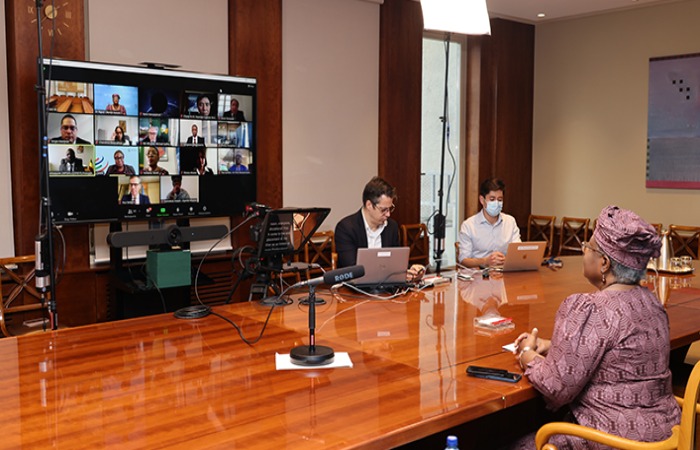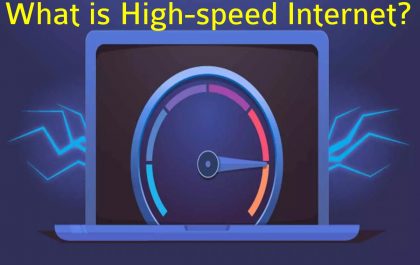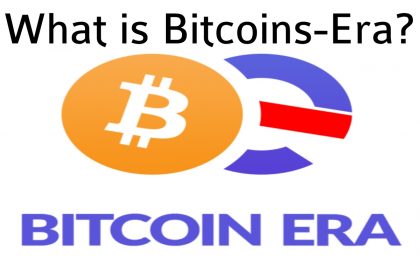Table of Contents
WTO Digital
The WTO has followed and discussed the evolution of electronic commerce and its implications for trade in goods, services, intellectual property, and development. In the same ministerial declaration that adopted the 1998 Work Program. The members of the Organization undertook to maintain a “moratorium” on electronic commerce. The obligation is “not to impose customs duties on electronic transmissions.” Since then, this provisional commitment has been renewed every two years on the occasion of the Organization’s Ministerial Conferences.
Given the growing participation of electronic commerce in the world economy and the absence of specific WTO disciplines to regulate electronic or electronically enabled commercial transactions. In addition to Brazil, seventy-six members of the Organization decided to launch in January 2019. Plurilateral e-commerce negotiations, with participation open to all interested countries. Currently, 86 countries participate in the talks, an initiative that runs parallel to the discussions of the Electronic Commerce Work Program of the Organization. Therefore issues related to electronic commerce have gained prominence on the international agenda and go beyond commercial policy. Considerations are due to concerns associated with the protection of privacy and personal data of users and responsibility of digital platforms, location of servers, cybersecurity, taxation of the digital economy and consumer protection, among other topics.

WTO Digital library on electronic commerce
The digital on e-Commerce provides access to WTO resources related to e-commerce, multimedia content, a jargon buster, WTO e-commerce facts and infographics, and other valuable resources.
The information page provides access to a wide range of WTO materials, documents, and links related to e-commerce. Including communications from Members, reports, outcomes of Ministerial Conferences, speeches by the Directors-General, and much more.
In the search window below, users can filter e-commerce-related materials using keywords (e.g. “2019”; “CEO,” “development,” etc.).
WTO promotes dialogue on digital trade and e-commerce
At a meeting entitled “Global regulation of digital trade and e-commerce: What need?” organized by the Government of Denmark during UNCTAD’s Electronic Commerce Week, the Director-General of the World Trade Organization (WTO ). Roberto Azevêdo said that electronic commerce has enormous potential. But it is necessary to be aware of its challenges in areas such as connectivity and infrastructure.
According to the authority of the WTO, digital trade and e-commerce concern everyone. “The Internet and new pieces of knowledge are having a huge impact on our lives, in a way that we could not have dreamed of a few years ago. So it should come as no surprise that they are also transforming the way we operate,” he explained.
In this context, for Azevedo, electronic commerce is an increasingly important aspect of today’s economy. “It offers chances to overcome some of the traditional problems to trade, including the costs associated with physical distance. It opens up unprecedented opportunities for companies to engage in cross-border trade,” he commented.
They will rethink e-commerce rates.
For 24 years, WTO members have regularly renewed that ban at their biennial ministerial meetings and are considering whether to do it again at this week’s ministers’ meeting in Geneva. Some nations, such as India and South Africa. Argue that the growth of the Internet warrants a rethink about whether the WTO’s e-commerce moratorium is still in the economic interest.
Countries would define customs tariffs.
To be sure, it is not immediately clear how a government would impose customs duties on electronic transmissions. According to Denton, it would likely be “costly” for customs officials to track and quantify the value of the myriad of data these products bring to consumers’ devices. In addition, the WTO does not define the scope of e-commerce transmissions. So it is unclear which online services would be subject to new tariffs. Be they Bitcoin cryptocurrency transactions, Airbnb accommodation, Uber car rides, Food Doordash or Platoon.
Electronic commerce and the WTO
In the early 1990s, transnational corporations (TNCs) in agriculture, services, pharmaceuticals and manufacturing reached agreements with the World Trade Organization. WTO- in each of these sectors that ensured the right of these companies to participate in markets on favourable terms. At the same time, the ability of governments to regulate and shape their economies was diminished and restricted. The matters agreed upon reflected the corporate business plan at that time.
Today the most prominent business corporations are also seeking to secure rights and perpetuate them through trade agreements, including in the WTO, which hamstrings public interest regulation. But now, the five largest companies are all in the same sector. The technology sector is all from one country: the United States. Google, Apple, Facebook, Amazon and Microsoft, with the support of other companies and the governments of Japan. Canada and the EU (and some developing countries aligned with them) are trying to reinvent the rules of the digital economy of the future in attempting to obtain, for this, a mandate within the WTO [1] to negotiate binding rules labelled as “electronic commerce”.
Conclusion
The World Trade Organization ( WTO ) is the individual international Organization dealing with the global rules that govern trade between countries. Its principal function is to ensure that commercial flows flow as smoothly, predictably and freely as possible.
Also Read: Social Media – Importance, Types, and More
Related posts
Featured Posts
What is High-speed Internet?
High-Speed Internet High-velocity Internet, also referred to as broadband Internet, is defined via the Federal Communications Commission (FCC) as Internet…
What is Bitcoins-Era?
Bitcoins-Era is a trading podium that uses a sophisticated artificial intelligence system capable of analyzing the market and autonomously buying…


